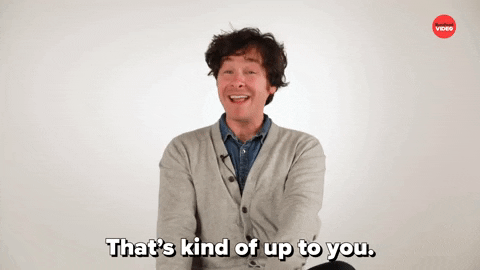- change is here*
- Posts
- 😅 Can work suck less?
😅 Can work suck less?
your guide to finding out
The latest in mental health news, resources, and stories.
WEEKLY(ISH) ROUNDUP
Latest happenings in mental health 🧠
Unsurprisingly, back-to-back hurricanes can take a serious toll on mental health.
Is meditation the new medication for anxiety relief?
Many US states are suing social media companies over kids’ mental health - with Indigenous tribes joining the fight.
Your mental wellness microdose 💊
Add this list of feel-good movies to your bad day survival kit
A solid self-care practice could up your leadership game
What lies at the intersection of learning and connection? Virtual FieldTrips, of course
JOIN THE MOVEMENT
Change minds about mental health 🤝
Forward this newsletter (and subscribe if you haven’t already!)
Connect with others committed to mental health transformation in our growing Slack community
Bring mental health training to your community or org
Can work suck less?
Your younger self probably remembers when blink-182 famously declared “Work sucks, I know” (🎶 she left me roses by the stairs, surprises let me know she cares 🎶).

We spend a significant portion of our lives at work, and when things suck, it impacts nearly every other part of life. More than 70% of people say they’re dissatisfied with their career choices, and in 2022, nearly half (!!) of American workers admitted they wouldn’t wish their job on their worst enemy. That’s some serious shade.
Even when we’re in jobs we thought we wanted, the reality often doesn’t match the dream. That disconnect leaves us drained, frustrated, and potentially Googling “how to make work suck less” just like many folks on this reddit thread.
So why does it feel like hating work is a universal truth, no matter your role, industry, or level?
The answer is complicated, naturally. Research highlights a multitude of factors: poor management, overwork, stress, lack of autonomy, undercompensation, and, of course, office politics. But behavioral science offers a deeper insight: our need for praise. We’ve been conditioned from a young age to seek rewards—grades, trophies, validation. We thrive on being seen as successful. But when we chase validation, we often make career choices to impress others, rather than pursuing what actually makes us happy day to day.

Other reasons we might hate our jobs:
Unrealistic expectations about what work would actually be like (we’re not all living like Emily in Paris)
Impatience for career growth
Social media distorting reality, making it seem like everyone else has a dream job
Employers falling short on offering growth opportunities or compelling reasons to stay
So what can you do to mitigate the suckiness of work?
Know your motivators
Behavioral science suggests that understanding what drives you—whether it’s autonomy, mastery, or purpose—can significantly improve job satisfaction. What are your core values? What gets you out of bed in the morning? The better you know your motivations, the clearer your career decisions will become.
Communicate your boundaries
Once you understand your needs, it’s crucial to communicate them effectively. Behavioral research shows that when employees set clear boundaries, they not only reduce burnout but also improve their relationships with managers and colleagues.
Humans are social creatures, and according to research from Gallup, having a “work friend” is one of the strongest predictors of job satisfaction. Find someone you can trust at work—it makes the tough days more bearable and the good days even better.
Focus on deep work
Studies by Cal Newport show that multitasking actually reduces productivity and increases stress. Turn off your notifications, silence Slack, and dedicate uninterrupted time to tasks that require focus. You’ll be amazed at what you can get done.
Adjust your expectations
Behavioral science also suggests that managing expectations can improve overall satisfaction. If you’re constantly striving for perfection or waiting for your job to fulfill every aspect of your life, you’re setting yourself up for disappointment. Reframing your mindset can help you find contentment in what your job does offer, even if it’s not everything.
here* APPROVED
Things we’re loving 🫶
😌 BetterHelp for recognizing the realness that is election stress and making it easy to connect to a therapist.
Election Stress? Connect with a Therapist Before It Overwhelms You
With Election Season upon us, it’s easy to feel overwhelmed by stress and uncertainty. BetterHelp, trusted by 4 million subscribers, connects you with one of 32,000 licensed therapists specializing in helping people manage stress and anxiety during turbulent times. Whether it’s through phone, video, or text, their therapists are here to support you whenever and wherever you need it. Take their free 5-minute assessment and get matched with a therapist who understands your unique concerns. Plus, save $250 on your first three months of therapy and enjoy a risk-free experience with their money-back guarantee. Start the journey to a more peaceful mind today!
BEFORE YOU GO…
We’d love to hear from you! Help us improve our newsletter by answering a few short questions here.
That’s all for now, fam. In the meantime don’t forget to:
💌 Share this newsletter with a friend
💬 Join our Slack Community
🗣️ Get in touch with our team
<3
Meg, Quincy, and the Here* fam
Reply